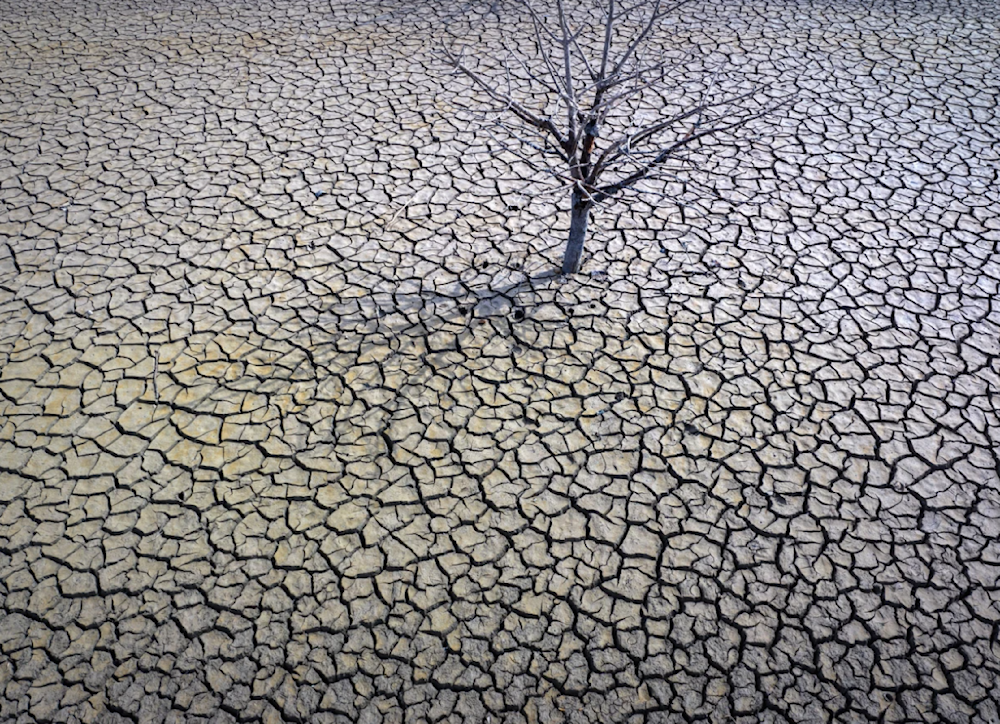ICJ climate ruling to shape future lawsuits, experts say
The ruling comes in response to a request from Vanuatu, a Pacific island nation facing existential threats from rising sea levels.
-

The cracked earth of the Sau reservoir is visible north of Barcelona, Spain, on March 20, 2023 (AP)
The International Court of Justice (ICJ) ruled Wednesday that states can be held legally accountable for climate-related harm, a landmark decision experts say could shape climate litigation worldwide.
"This is the first time that the world's highest court – the International Court of Justice – addresses the legal obligations of states with respect to climate change," said Christina Voigt, a law professor at the University of Oslo, in an interview for Anadolu.
The ruling came in response to a request from Vanuatu, a Pacific island nation facing existential threats from rising sea levels. The ICJ found that countries are obligated to protect the environment from greenhouse gas emissions and must exercise due diligence and international cooperation to fulfill this duty.
States listed in Annex I of the UN Framework Convention on Climate Change, the court added, bear additional responsibilities to lead emission reduction efforts and improve carbon sinks.
Voigt noted the ruling's significance lies in its clarification of climate duties under both international treaties and customary law, helping to strengthen the legal foundation for global climate action.
International cooperation under the UN Climate Convention necessary
The court also underscored the need for international cooperation under the UN Climate Convention and reaffirmed commitments outlined in the Kyoto Protocol and Paris Agreement, including the duty of states to take meaningful steps toward meeting temperature targets.
“The court applied not only the UN climate treaties but also human rights law, the law of the sea, and customary international law,” Voigt said, calling the case one of the most widely supported in ICJ history, with extensive input from states and international organizations.
The advisory opinion referenced key environmental treaties like the Ozone Layer Conventions, the Convention on Biological Diversity, and the Desertification Convention, highlighting their relevance, especially for drought-stricken African nations.
Court's opinion aligns with interests of Global South, small island developing states
Jorge Viñuales, professor of law and environmental policy at the University of Cambridge, said the court's opinion notably aligned with the interests of the Global South and small island developing states. He emphasized that states' responsibilities now extend beyond emissions to include fossil fuel production and subsidies.
“Climate justice is governed by the general international law of state responsibility, which provides solutions for the recurrent arguments leveled to escape liability for climate harm," Viñuales said.
The professor added, “Today’s finding is huge! It will require more unpacking, discourse, and reflection – and, most importantly, action. Those states with the capacity to act and with high responsibility for greenhouse gas emissions” have a duty to act with enhanced due diligence."

 3 Min Read
3 Min Read








